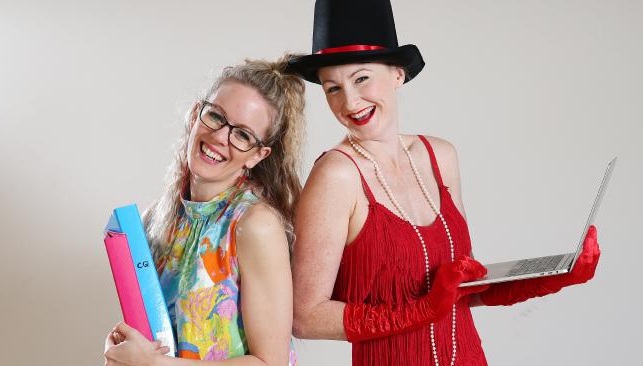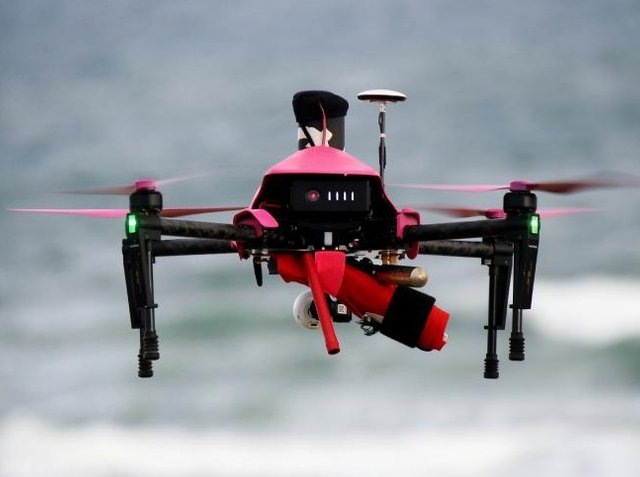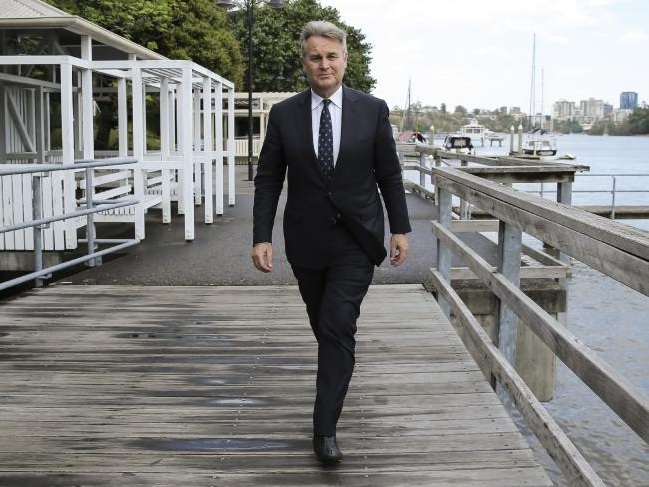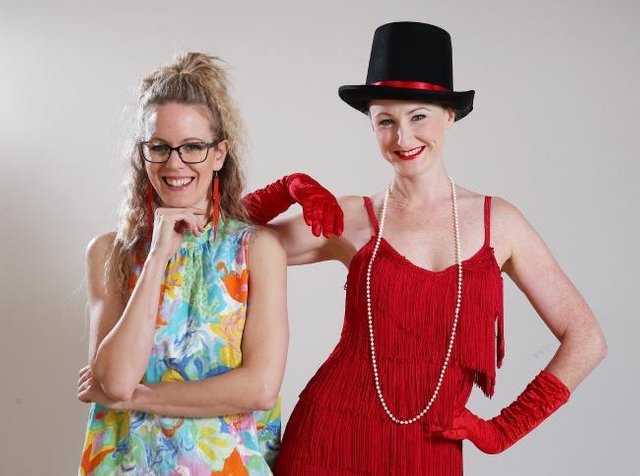How we will work in the year 2030
Work revolution: forecasters predict the jobs of the future, how we will work and the skills in demand
IN just over a decade’s time, uni degrees will be old school, work hours will be shorter and personal reputations will require their own staff. This is the future of work.

Forecasters predict that most people will be juggling multiple part-time jobs in the future, like Maureen Bowra and Jenny Usher do. Picture: AAP Image/Claudia BaxterSource:News Limited
JOB juggling, three-day weekends, interviews via virtual reality, and roles we haven’t dreamt up yet – welcome to the year 2030.
The lasting effects of the Global Financial Crisis paired with new automation technologies have set up Australia and the world for a work revolution.
Experts are predicting an almost unrecognisable future where workers must get on board or be left behind.
JOBS THAT DON’T YET EXIST
Eighty-five per cent of jobs in 2030 have not yet been invented, according to forecasts by Dell Technologies and Institute for the Future.
Experts predict some of these roles will be in the drone sector, where new jobs will range from coding and robotics to drone insurance and racing.
“Having tens of thousands of drones swarming over most metro areas on a daily basis may seem annoying at first, but the combination of new businesses, jobs, information, data analysis, new career paths, and revenue streams will quickly turn most naysayers into strong industry advocates,” Thomas Frey of DaVinci Institute said.

Drones will create new jobs in the future. Picture: AP Photo/Bob EdmeSource:AP
Meanwhile, strategy adviser and futurist Ross Dawson predicted new roles in helping computers to emotionally engage with users and in personal reputation management.
“Companies hire public relations firms to manage their reputation but now everyone has to be concerned about the things they potentially did years ago that went up on social media that shouldn’t have that can be searched online,” he said.
DIFFERENT SKILLS IN DEMAND
The workers of 2030 will spend twice as much time problem-solving than the workers of today as automation takes over routine tasks and redirects human brainpower.
A report from the Foundation for Young Australians predicts 77 per cent more time using science and maths skills, 41 per cent more time on critical thinking, 30 per cent more time learning on the job, and 17 per cent more time using communication and interpersonal skills.
MORE: How students can avoid wasting their degrees
Bernard Salt, managing director of The Demographics Group, said workers of the future must perfect the art of forming new relationships.
“If you are in the same job for 40 years you don’t have to make new relationships (but) if you are changing every two years, you have to be comfortable introducing yourself and being sociable,” he said.
“We need a word that means to fearlessly fit in, infiltrate and operate effortlessly in a new situation.”

Bernard Salt says people will need to feel comfortable forming relationships. Picture: Mark Cranitch.Source:News Corp Australia
Anne Primus, partner and principal of 6 Degrees Consulting, said the soft skills in demand would be resilience, adaptability and a willingness to re-skill and retrain.
“People need to be agile just like businesses,” she said.
GOODBYE NINE-TO-FIVE
The traditional work day and work week have been disappearing for some time and this is set to continue.
Earlier this year, Australian Greens leader Richard Di Natale proposed a three-day weekend, arguing automation will shrink the number of jobs therefore an individual’s work hours should be reduced to share the jobs around.
Despite unemployment remaining relatively steady in recent years, underemployment – the portion of workers given less hours than they would like – is growing.
In November 2016, 8.9 per cent of Australians were underemployed, up from 6.7 per cent 10 years earlier and 4.2 per cent 30 years earlier, the Australian Bureau of Statistics found.
Phil Ruthven, founder of IBISWorld and author of CEDA report Australia’s future workforce?, said the move toward fewer work hours was unavoidable to keep unemployment rates in check.
“We have been reducing working hours per week for over 200 years since Governor Macquarie made 60 hours per week the maximum,” he said.
MORE: Mistakes jobseekers make in resumes and interviews
“Today, the average of the 12.1 million workers is under 30 hours after allowing for the two months off work each year (including annual leave, public holidays and sick leave) plus the one in three workers working part time.
“If we were still working a 60-hour week, the unemployment rate would be around 55 per cent not 5.5 per cent.
“Countries will reduce annual hours, as always, but how they do it will vary: shorter days, shorter weeks, shorter months or shorter years.”
Temporary and contract roles are on the rise, with 23 per cent of employers planning to increase their use of temp staff in the next 12 months, according to recruiter Hays.
JUGGLING MULTIPLE JOBS
More than 750,000 Australians had two jobs last year, according to the ABS.
Global futurist Chris Riddell said most workers of the future will have a part-time job in a traditional sector plus a start-up or freelancing gig on the side.
“Gen Y, Z and Alpha will have multiple careers throughout their lives and have multiple income streams at any individual time,” he said.
McCrindle research forecasts the average worker will have five separate careers in their lives, with today’s school leavers to have 17 employers by the time they retire at age 75.
Mr Salt said changes to work hours would mean more variety of work not more down time.
“You might work 30 hours a week as a journalist, consultant or schoolteacher but with the extra 10 hours a week you would usually work, do you sit at home and watch day time TV or use that free time to pursue other interests that might have commercial benefit?” he said.
“The human condition abhors idleness. We are genetically geared to do stuff or we would have died out thousands of years ago.”
Brisbane ladies Jenny Usher and Maureen Bowra have already embraced the job juggle.

Maureen Bowra and Jenny Usher both have multiple jobs. Picture: AAP Image/Claudia BaxterSource:News Limited
Ms Usher spends 17 hours a week in an administrative role with Brisbane Festival in between running her cabaret company Candy Shop Show Australia and mobile corporate pilates company Flair Pilates.
“I’m not a one direction kind of person. I like to have a finger in every pie. It keeps me interested in what I do,” she said.
“I hope this is the future but it’s not for everyone. Some people like structure but I enjoy the logistical nightmare my life can be. I am never bored.”
Miss Bowra spent two years in a nine-to-five IT role before trading it in for multiple part-time and casual gigs.
She now teaches musical theatre, is a puppeteer for children’s charity Camp Quality, and works on stage productions. Currently, she is associate director for Grease — The Arena Experience.
“Sometimes I see people who are obviously nine-to-fivers on the weekends enjoying breakfast at the local cafe and I get a pang of jealousy because their lives are simple but ... I enjoy being my own boss and getting to choose my hours and what I want to do when,” she said.
A NEW QUALIFICATION SYSTEM
While university degrees will always be valuable, they will not be the only education pathway for many industries.
In Silicon Valley, Mr Dawson said reputation already trumped qualification.
“We’re going to see new ways to find out how good people are,” he said.
“With nano degrees, you do the learning, do the test then show your employer you have good knowledge in a specific area and these are very pragmatic and practical.”
VIRTUAL REALITY JOB INTERVIEWS
The Dell report forecasts jobseekers will use virtual reality to showcase skills and competencies remotely when applying for jobs.
Augmented reality – where digital information is superimposed over reality rather than replacing it as in VR – will also be used in the world of work, according to IntelliHR customer success manager Glenn Donaldson.
Mr Donaldson predicts AR will become mainstream in the next three to five years and notes McDonalds already uses Snapchat filters in its recruitment process.
Users can try on a virtual uniform then send a 10-second video application